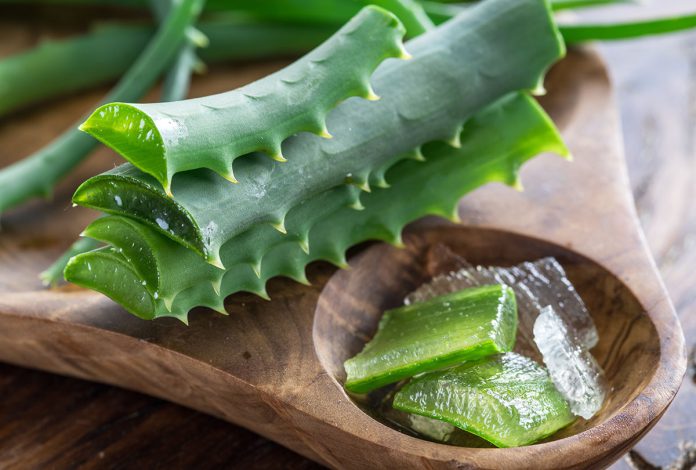Aloe vera, often referred to as the “plant of immortality,” is a succulent plant that has been treasured for centuries for its medicinal and cosmetic properties. Native to the Arabian Peninsula, it is now cultivated worldwide for its numerous health benefits. In this comprehensive guide, we will explore the incredible health benefits of aloe vera while also shedding light on potential dangers and precautions associated with its use.
Understanding Aloe Vera
Aloe vera additionally alluded to as Aloe barbadensis is a herbaceous plant with various medical advantages. It is used in alternative medicine to aid in the treatment of a myriad of conditions. Aloe vera is a similar to a cactus species that flourishes under dry and hot climates. The aloe gel is the primary ingredient of the plant that is used for medicinal and cosmetic purposes.
The use of aloe vera can be traced back around six thousand years ago to the time of early Egypt. The plant is known by some as the “plant of immortality” the aloe plant was presented as a gift during funerals of Pharaohs. Apart from Egypt many other nations have also used aloe vera for the health advantages it offers. This includes Greece, India, Mexico, Japan, and China.
Aloe vera is a source of active ingredients that contribute to the health benefits of this plant. There are approximately 160 essential components in the leaves of aloe vera. According to some experts, there are as high as 300-400 essential components. Aloe vera, for instance, has Vitamins A, C, E, and B. They are antioxidants which work by fighting free radicals in order to reduce an oxidative stress. Aloe vera also has monosaccharides, polysaccharides as well as enzymes and secondary plant compounds.
Medical advantages of Aloe Vera
Aloe vera is renowned for its many health benefits, such as:
Expanded Injury Mending
Aloe vera is normally utilized as a skin treatment which is the point at which it’s applied onto the face. For quite a while it’s been utilized for injuries and consumes. It’s actually an effective treatment to speed up the healing time for burns.
What is the role of aloe vera in speeding wound healing? Aloe vera is a source of glucomannan, an oligosaccharide, as well as gibberellin, which is a growth hormone. This is a result of interactions with the growth factor receptors that are found on fibroblasts. This causes cell’s growth is stimulated by increasing collagen synthesis. This makes the healing process speedier.
Skin Safeguard
Numerous studies have demonstrated that aloe vera can have beneficial effects on skin. It shields skin from damage caused by free radicals and radiation’s effects in the body. The precise mechanism is not clear however when aloe gel is applied to the face, it creates metallothionein which is a potent antioxidant protein that wards away radicals that are hydroxyl.
Soothe Insect Bites
Because of the substances in aloe that help prevent inflammation, it’s been employed to ease the pain of bites from insects. When placed on skin aloe vera works as an antipruritic that reduces or stops itching.
Anti-Inflammatory Effects
Aloe vera can be a powerful anti-inflammatory. It blocks the cyclooxygenase pathway, and reduces prostaglandin E2 production by arachidonic acid. Additionally, as inflammation is typically caused through oxidative damages caused by free radicals. Aloe works as an antioxidant and fights free radicals. The plant’s anti-inflammatory properties extend beyond the skin. Aloe vera’s compounds can help reduce inflammation throughout the body, potentially benefitting those with conditions like arthritis.
Aids in Digestion
The most well-known advantages of the aloe vera is its capacity to improve digestion. Consuming aloe Vera juice helps improve digestion, and helps relieve hyperacidity ulcers, and gastroesophageal disorder (GERD).
Laxative Effect
Aloe vera is regarded as an effective natural laxative. The anthraquinones present in latex may help to boost the amount of water in the intestines, and stimulate the production of mucus. In addition, it increases the peristalsis of the intestinal tract, which can prevent constipation. Aloe vera latex, a yellow substance found just beneath the plant’s skin, contains compounds called aloin and anthraquinones. These compounds have strong laxative effects and can lead to diarrhea if ingested in excess.
Risks associated with Aloe Vera to your health
Despite being a health supplement with many benefits, aloe vera can also be harmful.
Skin Sensitivity
Some individuals may be sensitive to aloe vera gel when applied topically. It’s advisable to perform a patch test before using it extensively on the skin. Certain people might be sensitive to the components of aloe vera. In addition, the long-term usage of aloe vera gel may trigger skin allergies including hives and inflammation.
Pregnancy and Breastfeeding
Pregnant and breastfeeding women should exercise caution when using aloe vera internally, as it may have uterine-stimulating effects. High doses of oral aloe vera are dangerous. Don’t take oral aloe vera if you have intestinal problems, heart disease, hemorrhoids, kidney problems, diabetes, or electrolyte imbalances.
Low Blood Sugar
Aloe vera can help lower blood sugar levels. However, diabetics who are taking medications to reduce their blood sugar levels should be on guard when using aloe vera to avoid lower blood sugar to levels that are dangerous.
Aloe vera is a plant that has numerous health benefits. But, alongside its health benefits, there are dangers that one should be wary of.
Conclusion
Aloe vera is a versatile plant with a wide range of health benefits, from promoting skin health to aiding digestion and immune system support. However, it’s crucial to use it responsibly and be aware of potential side effects and interactions, especially when using aloe vera supplements or applying it topically. Consulting with a healthcare professional before incorporating aloe vera into your health and wellness routine is a wise choice to ensure safe and effective use. When used wisely, aloe vera can be a valuable addition to your natural health toolkit, offering a plethora of benefits for overall well-being.







